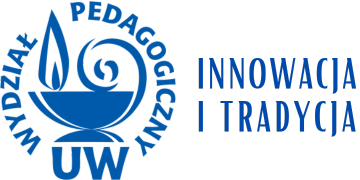Międzynarodowe Seminarium Wydziału Pedagogicznego UW: 05.04.2018
Międzynarodowe Seminarium Wydziału Pedagogicznego UW
Uprzejmie zapraszam do udziału w kolejnym spotkaniu w ramach Międzynarodowego Seminarium WP UW, które odbędzie się5 kwietnia 2018 (czwartek), godz. 17.00, w sali 507. Naszym gościem będzie Prof. Dani Ben-Zvi (Faculty of Education, University of Haifa, Israel), który wygłosi wykład “Data Science Goes to School”.
Rafał Godoń
Prof. Dani Ben-Zvi
Prof. Dani Ben-Zvi is the head of the Learning, Instruction and Teacher Education Department, founder of the Educational Technologies Graduate Program, and member of the Mathematics Education Department in the Faculty of Education, the University of Haifa, Israel. Dani is a leading international scholar in statistics education focusing on developing young students’ statistical reasoning. He has a lifetime of experience working with learning communities. He designs and studies technology-enhanced learning communities as means to make complex domains such as statistics and learning sciences more accessible to learners. Currently, he leads two Research Excellence Centers in Israel: LINKS that examines learning in a networked society in inter-disciplinary ways, and TCSS that study citizen science as means for enhancing students’ scientific and statistical literacies.
The topic of the talk
Data Science Goes to School
Abstract: This talk is a reflection on my 20 years statistics education research that elucidates the emergence of statistical reasoning of young students (primary school) in authentic data investigations in ‘Connections’, a technology- and inquiry-enhanced learning environment. Three main evolving and guiding paradigms will be described: EDA – children investigate sample data they have collected without making explicit inferences to a larger population; ISI – children make inferences informally from sample to population; and Statistical Modeling – children use computerized tools to model the phenomenon they study and draw random samples from the model to study probabilistic ideas and improve their model. In each of these three paradigms, a short rationale, an example of learning outcomes, and learned lessons will be provided. Current statistics education pedagogical and theoretical challenges will be discussed in light of these paradigms. Questions are welcomed.
